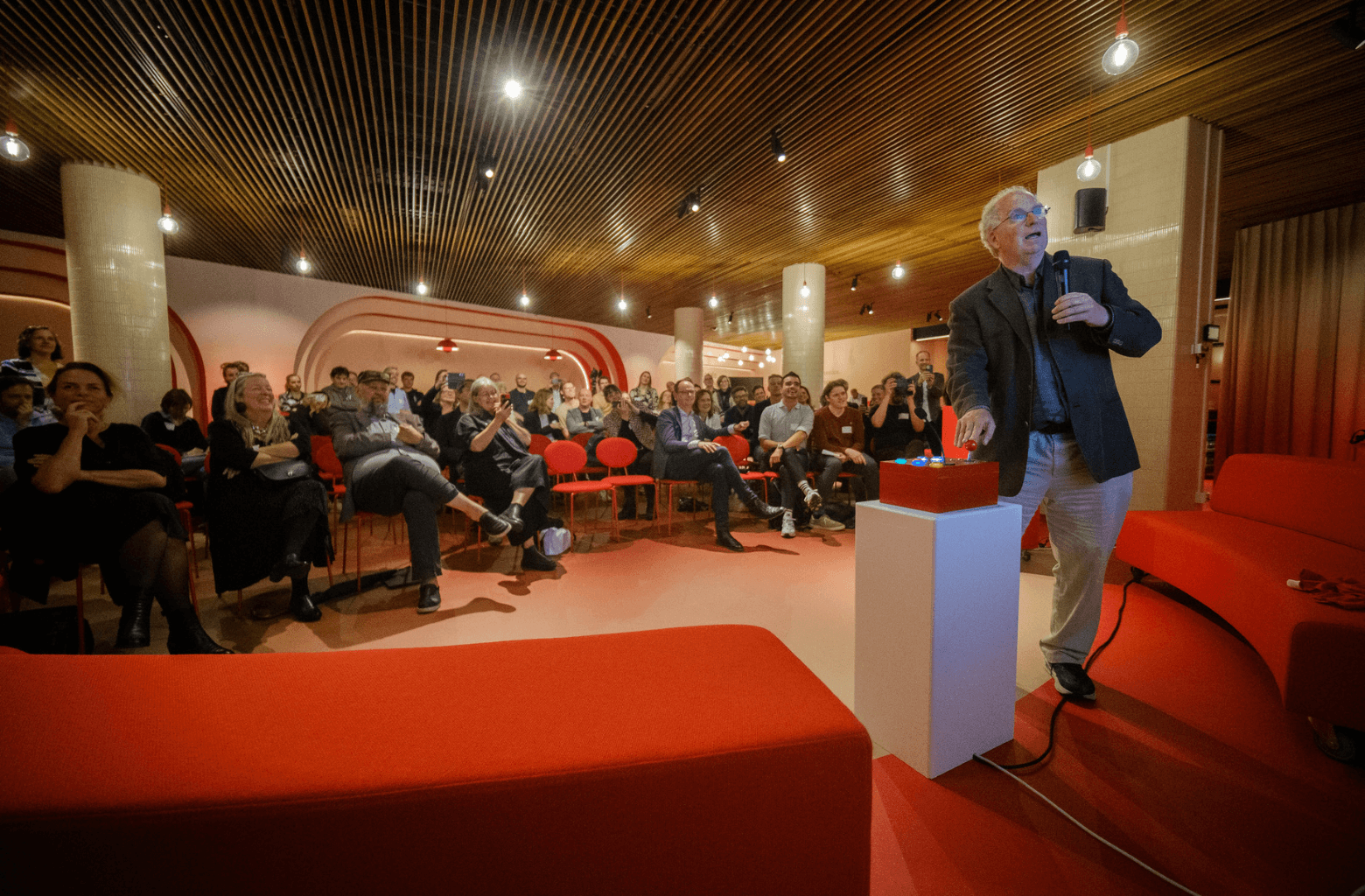On 17 September, the KB – National Library of the Netherlands hosted an inspiring gathering on the theme of digital sovereignty and the future of web archiving, featuring Marleen Stikker (Waag Futurelab) and Brewster Kahle (Internet Archive / Internet Archive Europe). The event brought together colleagues from OCW, the Rijksmuseum, Europeana, UNESCO, Beeld & Geluid, the Hilversum Time Machine, and many others — a true community committed to safeguarding our shared digital heritage.
Setting the Stage: Why the Web Matters
The session began with Sophie Ham from the KB introducing the national web collection. As she noted, “Our life is on the internet and that is worth preserving.” She reminded the audience that the Dutch web, though relatively small, is of unique historical significance. The Netherlands was already present on the internet in 1985, and remarkably, the third and fourth websites ever created were hosted here.
Sophie emphasized how the Internet Archive has been an invaluable partner in capturing material from before 2007 (when the KB’s own archiving began), and continues to provide preservation capacity that Dutch institutions cannot yet fully pursue due to legal restrictions.
Marleen Stikker on the Digital City and Public AI
Marleen Stikker, in conversation with Martijn Kleppe, revisited De Digitale Stad — the pioneering 1990s digital community. As its former “mayor,” she recalled both the promise and the early challenges of online communication.
Her message was clear: if we want democratic and open digital infrastructures, we must invest in Public AI, built on European values, as articulated in Paul Keller’s recent white paper. Just as De Digitale Stad was once a civic experiment in digital space, today’s moment calls for a renewed commitment to public digital institutions.
Brewster Kahle: Putting Collective Memory at Our Fingertips
Closing the afternoon, Brewster Kahle of the Internet Archive Europe shared reflections on nearly three decades of global web preservation.
He began by warmly thanking XS4ALL and KPN for years of server support, and Beeld & Geluid for taking on this role moving forward. He noted that the Internet Archive is fast approaching the milestone of one trillion websites preserved. For Kahle, this work rests on a simple truth: “People are awesome. People want to share, and what they share is worth preserving.”
Kahle too called for Public AI, not dominated by corporate interests but rooted in European values and democratic accountability. He illustrated the potential of AI trained on public knowledge with the example of Leiden University dissertations — documents unlikely to be read by many humans, but which could fuel new discoveries when made accessible to machines.
Perhaps the most tangible expression of this vision was the unveiling of a new interactive machine installed at the KB. Visitors will be able to explore the Dutch web as preserved in the Internet Archive’s collections until 11 October, culminating in The Hague’s Museum Night. More than just a tool, this machine embodies the possibility of placing our collective memory directly at each individual’s fingertips. It demonstrates how digital preservation is not about storing data in the abstract, but about making the richness of the past immediately usable, searchable, and alive for today’s citizens.
This is what “bringing collections to life” truly means — connecting people with the traces of their own digital history and empowering them to use that knowledge to understand the present and imagine the future. And this is at the heart of Internet Archive Europe’s mission: to ensure that Europe’s digital memory is not only safeguarded, but also activated, accessible, and meaningful to all.
Looking Forward
The event at the KB was more than a discussion: it was a reminder that preserving the internet is not just a technical task, but a cultural, democratic, and civic responsibility. It highlighted the importance of collaboration — between libraries, archives, technologists, and policymakers — in ensuring that Europe’s digital memory remains accessible for future generations.
As Brewster Kahle put it, what people share online is worth keeping. And with initiatives like Internet Archive Europe, anchored in Amsterdam, we are taking meaningful steps to safeguard that shared heritage — and to build public digital infrastructures that can meet the challenges of the 21st century.

Photo credit: “Preserving Digital Sovereignty: Marleen Stikker & Brewster Kahle at the KB” by Sebastiaan ter Burg, CC BY 4.0



